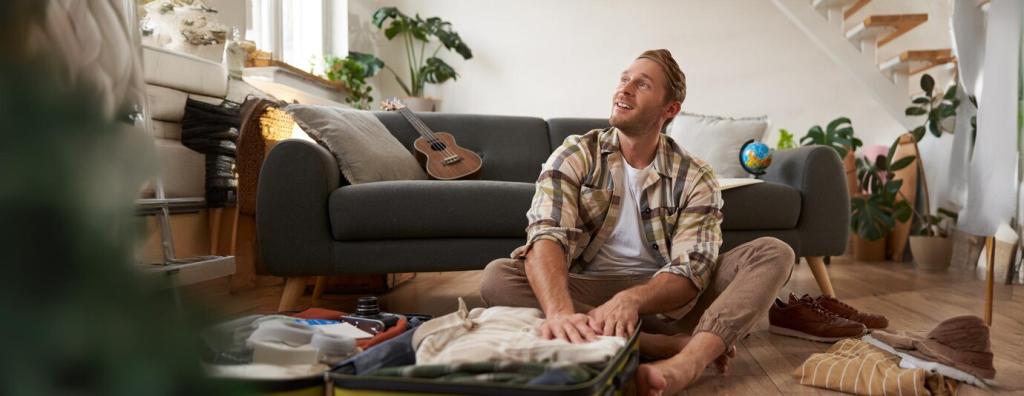How Decluttering Enhances Mindful Practices
Decluttering is more than just an aesthetic choice—it is a powerful tool that can significantly deepen and promote mindful living. By thoughtfully organizing our physical surroundings and letting go of excess possessions, we clear both our environment and our minds, paving the way for greater presence, awareness, and calm. This approach creates conditions where mindful practices can flourish, offering a practical and sustainable path to greater well-being. In the sections below, we explore how decluttering supports and enhances various facets of mindfulness, examining the intricate connection between a tidy space and a focused mind.


Cultivating Emotional Balance
Many of the things we hold onto are tied to our past—sentiments, regrets, or unrealized ambitions. The physical act of decluttering can prompt reflection on what we truly need and value, providing an opportunity to release emotional weight alongside physical clutter. Letting go in this way deepens our mindful connection to the present, helping us stay grounded and reduce the emotional burden of past attachments. This process encourages acceptance, forgiveness, and the gentle acknowledgment of change, which are all central to mindful living.
Deepening Focus and Clarity
A chaotic environment often mirrors and aggravates a chaotic mind, making it difficult to focus on the task at hand. Decluttering eliminates unnecessary stimuli, enabling you to direct your attention with greater precision. Whether meditating, reading, or working, this clarity of space allows your mind to settle more swiftly, resulting in deeper concentration. Over time, your ability to recognize and redirect distractions sharpens, reinforcing mindfulness and making it a more natural part of your daily rhythm.
Clutter often leads to routines driven by habit or obligation rather than conscious choice. When your physical space is streamlined, it’s easier to spot the patterns that no longer serve you and to make more mindful decisions. This intentional approach to living ensures that your actions, environment, and ultimately your mindset reflect your true priorities and values. As a result, your conscious efforts become more purposeful, supporting the ongoing development of mindfulness in ordinary moments.
Mindful practices thrive in environments that support consistency and simplicity. Decluttering creates clear, dedicated spaces for activities like meditation, journaling, or yoga, removing barriers to their enjoyment and making it easier to maintain regular practices. These intentional spaces serve as gentle reminders, reinforcing your commitment to self-care and contemplation. When distractions are minimized and everything you need is close at hand, your transitions into mindful rituals become seamless, enriching the quality of each practice.

